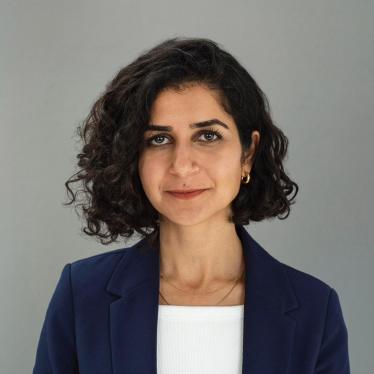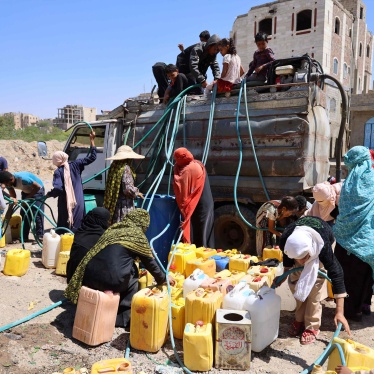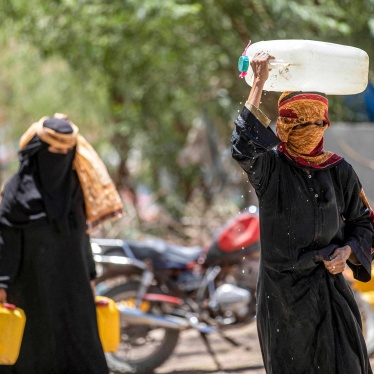On January 11, the United States and United Kingdom began carrying out airstrikes in Yemen in response to unlawful Houthi attacks on commercial shipping vessels in the Red Sea. As they enter this new chapter of armed conflict in Yemen, the US and UK still have not ensured accountability for possible violations of international humanitarian law and likely war crimes they and their partners have committed in the country for years.
The US began conducting “targeted killing operations” in Yemen in 2002 against Al-Qaeda in the Arab Peninsula (AQAP). The strikes continued until at least 2019, and killed many civilians, including 12 people attending a wedding in 2013. At the time, the US failed to acknowledge and investigate the civilian deaths in that attack.
The US and UK have also supported Saudi Arabia and the United Arab Emirates in their conflict with the Houthis in Yemen from 2015 until today. They have contributed billions of dollars’ worth of arms, as well as logistical support in training, that facilitated likely coalition war crimes and US/UK complicity in them.
The US government has obstructed investigations into weapons sales to Saudi Arabia, and the UK has continued to sell arms to Saudi Arabia despite those weapons being used by the coalition to carry out apparent violations of international humanitarian law and war crimes.
Meanwhile, western powers have consistently failed to adequately support local civil society and accountability and justice mechanisms that are a bedrock for long-term stability and maintaining adherence to international law. Neither the US nor UK has supported efforts to establish a new investigative mechanism at the United Nations Human Rights Council after the Group of Eminent Experts was disbanded in 2021 due to aggressive lobbying efforts by Saudi Arabia and the UAE.
By launching new strikes and expanding the conflict in Yemen without taking any meaningful steps to adequately support justice processes, the US and the UK have given Yemenis no reason to believe that this time around they’ll prioritize rights and international law.










